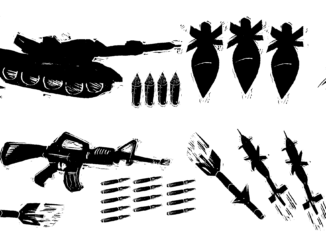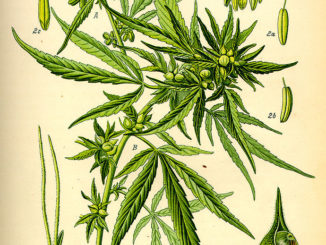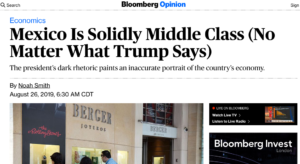
Terrorist Designation for Mexican Cartels: Temporary Relief, Latent Threat
Increased violence would be the main impact of Washington designating cartels terrorist groups.

Increased violence would be the main impact of Washington designating cartels terrorist groups.

A safe supply of drugs is not something that we need to have a revolution and demolish capitalism for. It is something we can do on the way to that.

A rush to cash in on legal cannabis is putting pressure on traditional cultivators in Latin America and the Caribbean, while Canadian companies seek to control every aspect of the weed business and push for policing of less-than-legal operations.

A recent opinion piece in Bloomberg makes a concerted effort to paint Mexico as “a moderately prosperous nation,” that “the World Bank calls upper-middle-income.” The thrust of the article is that Trump’s rhetoric on Mexico is wrong, and the country is, in fact, doing pretty alright. While I’m obviously not out to prove Trump right, I do want to correct the record on a few things…

Let’s start with the contention that Mexico is “upper middle income.” In 2019 World Bank ranked 60 countries as upper middle income. These are countries where GNI (Gross National Income, formerly known as GDP or Gross Domestic Product) is between $3,996 and $12,375 per capita (all figures in USD unless otherwise noted). According to the World Bank, Mexican workers earned an average of $9,180 a year, which is the equivalent of approximately $15,000 pesos per month.

Source: The Nation
It took a few tries before the taxi driver taking me to meet Lorena Cabnal found his way to her address. We drove up and down streets along the outskirts of Guatemala City, directions made confusing by the profusion of closed-off neighborhoods. Here, residents simply block streets and put up barriers to prevent cars from circulating, paying a guard to monitor who goes in and out. These aren’t the private gated communities of the rich, but rather survival strategies of the poor and working class in Central America’s largest metropolis.

Source: Vancouver Media Co-op
The forty three students disappeared by municipal police in Iguala, Guerrero on September 26, 2014, are still missing. As much as the state wants to put a lid on the protests, families and fellow students of the missing young men refuse to accept the official version, and have vowed to continue searching until they find the 43 alive.
The government of Mexico is facing the largest crisis of legitimacy since the war on drugs started in December, 2006. One of the chants at the marches is “It wasn’t narcos, it was the state!” This is a common sentiment, and one which undermines the state’s ability to produce hegemonic discourse with regards to what happened to the students.
Copyright Toward Freedom 2019